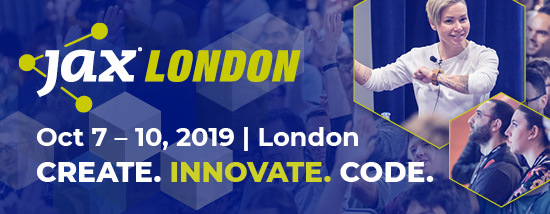A research study by The National Center for Women & Information Technology showed that “gender diversity has specific benefits in technology settings,” which could explain why tech companies have started to invest in initiatives that aim to boost the number of female applicants, recruit them in a more effective way, retain them for longer, and give them the opportunity to advance. But is it enough?
Two years ago, we launched a diversity series aimed at bringing the most inspirational and powerful women in tech to your attention. Today, we’d like you to meet Tammy Fox, Director of Technical Documentation at CloudBees.
Profile: Tammy Fox
Tammy Fox is the Director of Technical Documentation at CloudBees.
What got you interested in tech?
I became interested in technology at a young age. In lower elementary school, I asked for a video game system, and my parents gave me a TI99/4A because it allowed me to play video games, but it also had a keyboard, so they thought it was educational. My neighbor at the time was a retired telephone engineer. He gave me a stack of magazines with BASIC programs in it. I learned BASIC program using those magazines and my TI99/4A, and I have loved technology ever since.
A day in Tammy’s life
I have had managers in the past who were happy to support me in an individual contributor role but hesitate to give me the visibility to show what I could accomplish or a leadership role. Sometimes you have to learn what you can from a role and not let individuals stop you from advancing even if that means finding a different company that will give you a better opportunity to advance and learn.
Background, career, and obstacles
I graduated from college with a computer science degree and started off as a software developer for a consulting firm. Then, I moved on to become training curriculum developer. After that, I applied for a software engineer position at Red Hat because I wanted to get back to programming. They liked the website I had created for sharing the Linux tutorials I had written while learning Linux as well as my background as a training curriculum developer, so they offered me a job as a technical writer instead of the software engineering role I had interviewed for. They offered my husband, who has the exact same background and professional experience, the role of the software engineer. I considered insisting on the software engineer position, but I decided to take on the technical writer role with the plan to prove myself as both a great writer and software developer.
Sometimes you have to learn what you can from a role and not let individuals stop you from advancing even if that means finding a different company that will give you a better opportunity to advance and learn.
It worked. After a while I was the tech lead for the product documentation group writing build scripts, converting their docs source to XML, learning how to build RPM packages for the docs, and submitting patches to the DocBook XML packages. I also wrote and maintained one of the configuration tools that shipped with the product (system-logviewer).
After moving around to other companies, both big and small, in many different roles – web programmer, book author, trainer, customer success content manager, docs manager, I currently find myself enjoy the challenges of my new role at CloudBees as Director of Technical Publications, reporting to the Chief Product Officer.
Although I never intended to be anything but a software engineer, my experience in so many different roles is what allows me to excel in my current position.
Did you receive support from your family?
While my parents bought me a TI99/4A as a young child and my first real computer in 6th grade, they wanted me to become a doctor. It took a while to convince them that computer science was the right path for me, but they are now proud of my career choice and what I have accomplished.
Did anyone ever try to stop you?
I have had managers in the past who were happy to support me in an individual contributor role but hesitate to give me the visibility to show what I could accomplish or a leadership role. Sometimes you have to learn what you can from a role and not let individuals stop you from advancing even if that means finding a different company that will give you a better opportunity to advance and learn.
What are you most proud of in your career?
I am most proud of not letting anyone intimidate me, despite being a female in a mostly male business world. I stand up for what I believe in, both personally and professionally. I am often able to make significant improvements by explaining why change is necessary, both on a deep technical level as well as a higher organizational level.
Why aren’t there more women in tech?
It can be intimidating to try to enter an industry with not very many women. There were far more men studying computer science in my college than women. I read an article once on the topic, and it talked about how most women only apply for a job if they have a high confidence level they are qualified for it whereas most men will apply for a job if they are somewhat confident they have the skills necessary to succeed at that job.
I encourage women to apply for the job they want. Even if you don’t get it the first time, you can learn from the experience and set goals for yourself so you are successful the next time. You can’t be afraid of failure. If you don’t try, you will never succeed.
Challenges (or obstacles) women in tech face
It can be difficult to connect on a personal level to peers, co-workers, or managers if you are female and almost everyone else is male. It is difficult to want to befriend both male and female co-workers, but you should. You need to gain their trust and respect so you can be successful.
Would our world be different if more women worked in STEM?
People with different experiences and backgrounds offer different perspectives when trying to solve a problem. We need all levels of diversity in STEM to help further science and technology. Girls need strong female role models in different levels of leadership so they grow up knowing they can dream of being whatever they want to be, regardless of gender.
The discussion about diversity is gaining momentum. How long will it take to see results from the current debate?
Overall, I have seen a positive change since I started in the technology industry, but we are still to invest in the future of women in technology. More female role models in our industry, both local and global, will encourage young girls to be confident in who they are and pursue their interests in STEM if they have them. I think it will take another generation or two of females entering the technology industry for us to see a bigger impact.
Tips & tricks
Confidence goes a long way in this industry. Do your research to learn as much as you can about a topic so that you can speak with confidence and prove your solution is valid. You might face peers or managers who don’t see your full potential until you prove yourself. Also, don’t be afraid to ask questions. Asking detailed questions to gain a deeper understanding can frequently help you gain the respect of peers and leadership as well as help you have conversations with others who might not interact with you otherwise.
The post Diversity talk: “You can’t be afraid of failure. If you don’t try, you will never succeed.” appeared first on JAXenter.
Source : JAXenter




















